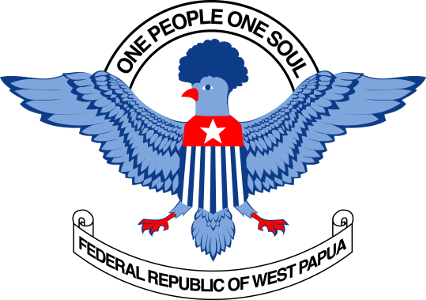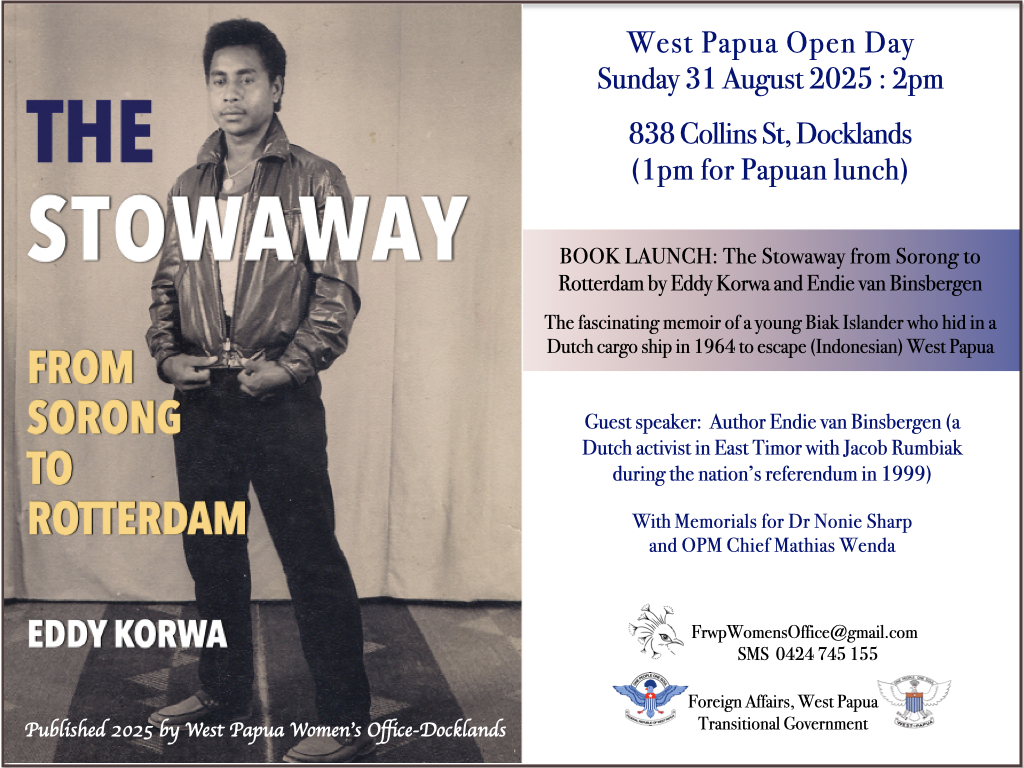
‘The Stowaway, from Sorong to Rotterdam’ by Eddie Korwa (2025)
On 31 August 2025, the West Papua Women’s Office-Docklands published its English translation of Eddy Korwa’s De Verstekeling, van Sorong naar Rotterdam (The Stowaway, from Sorong to Rotterdam). The Stowaway is a thrilling political narrative, full of history, love, politics and realpolitik, family, solidarity and betrayal, death, tragedy, soccer, and 60 historic photos.
On 19 April 1964, Eddy Korwa and Tony Rumpaisum, two well-educated young Melanesian West Papuans, escape their newly occupied and increasingly violent homeland on the last Dutch cargo ship to leave Sorong. Eddy’s Dutch pen pal from primary school happened to be a deckhand on the ship, and arranges for them to hide under the oil tank. Indonesian Intelligence hunts down the dissidents in Sorong, Geelong, and Sumatra; the British lock them up for a few days in Borneo; in Shanghai Chinese police question them. Three months after leaving Sorong, the MS Schelde Lloyd reaches Rotterdam in The Netherlands. Eddy and Tony are locked-up in a police cell for five days, then brought before the Police Commissioner, who says he’s sending them back to Indonesian-occupied West Papua! At this point we are only up to Chapter 5. Buy the book and see what happens next!!(https://westpapuawomensoffice.square.site/)
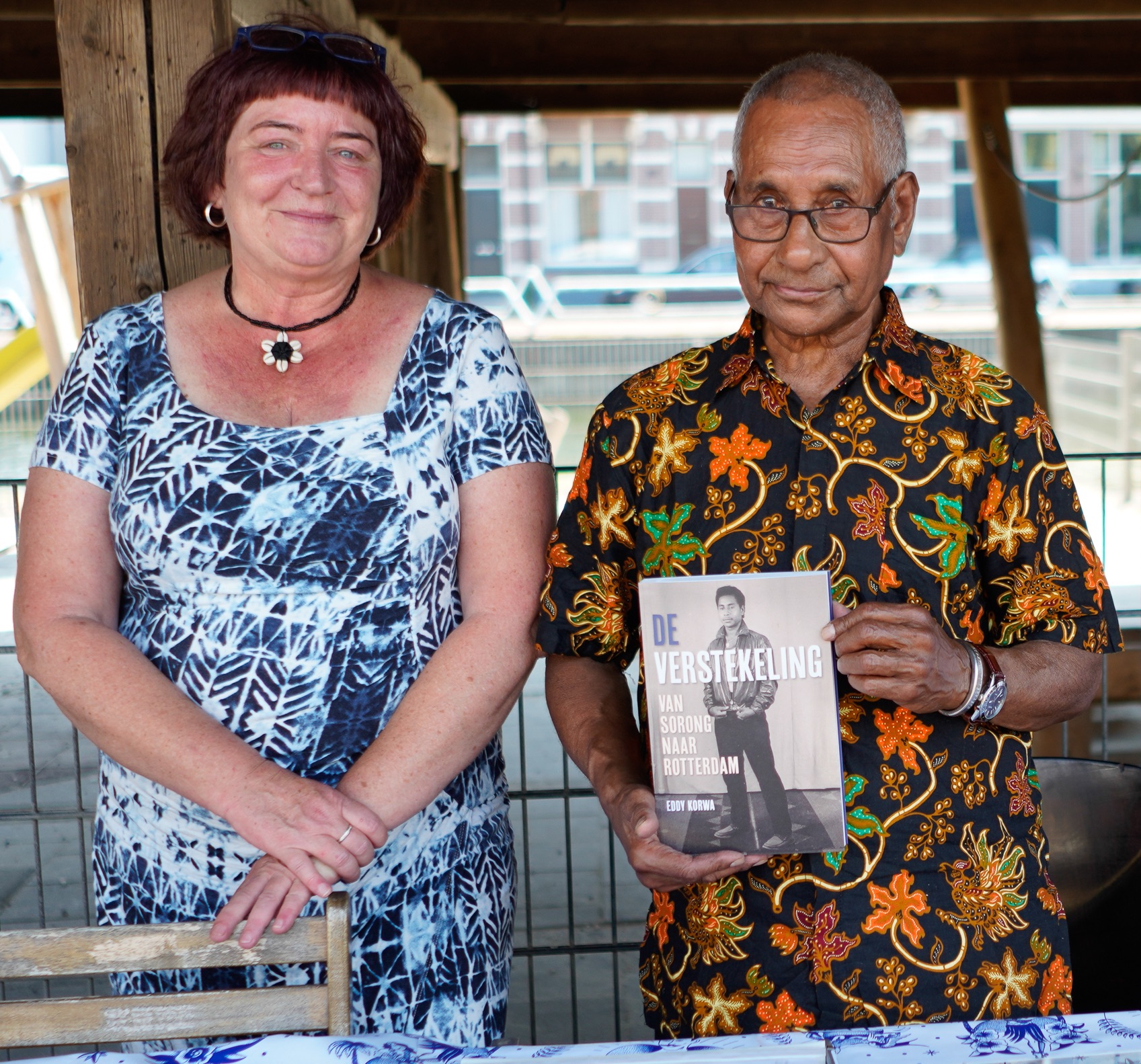
Author Eddy Korwa and co-author Endie van Binsbergen, De Verstekeling, van Sorong naar Rotterdam, The Natherlands, August 2020
Eddy was a protegee of the political and social development in West Papua between 1950 and 1962 when his homeland was a United Nations Non-Self-Governing Territory (NSGT) administered by the Netherlands. As a NSGT West Papua should have been decolonised in accord with international law, but after the murder of UN Secretary-General Dag Hammarskjöld in 1961, the United Nations voted to transfer the administration to Indonesia. A NSGT can only change its status via an exercise of self-determination (referendum) wherein the people choose to i) become an independent state, or ii) in free association with another state, or iii) integrate with an independent state. There has never been an act of self-determination in West Papua.
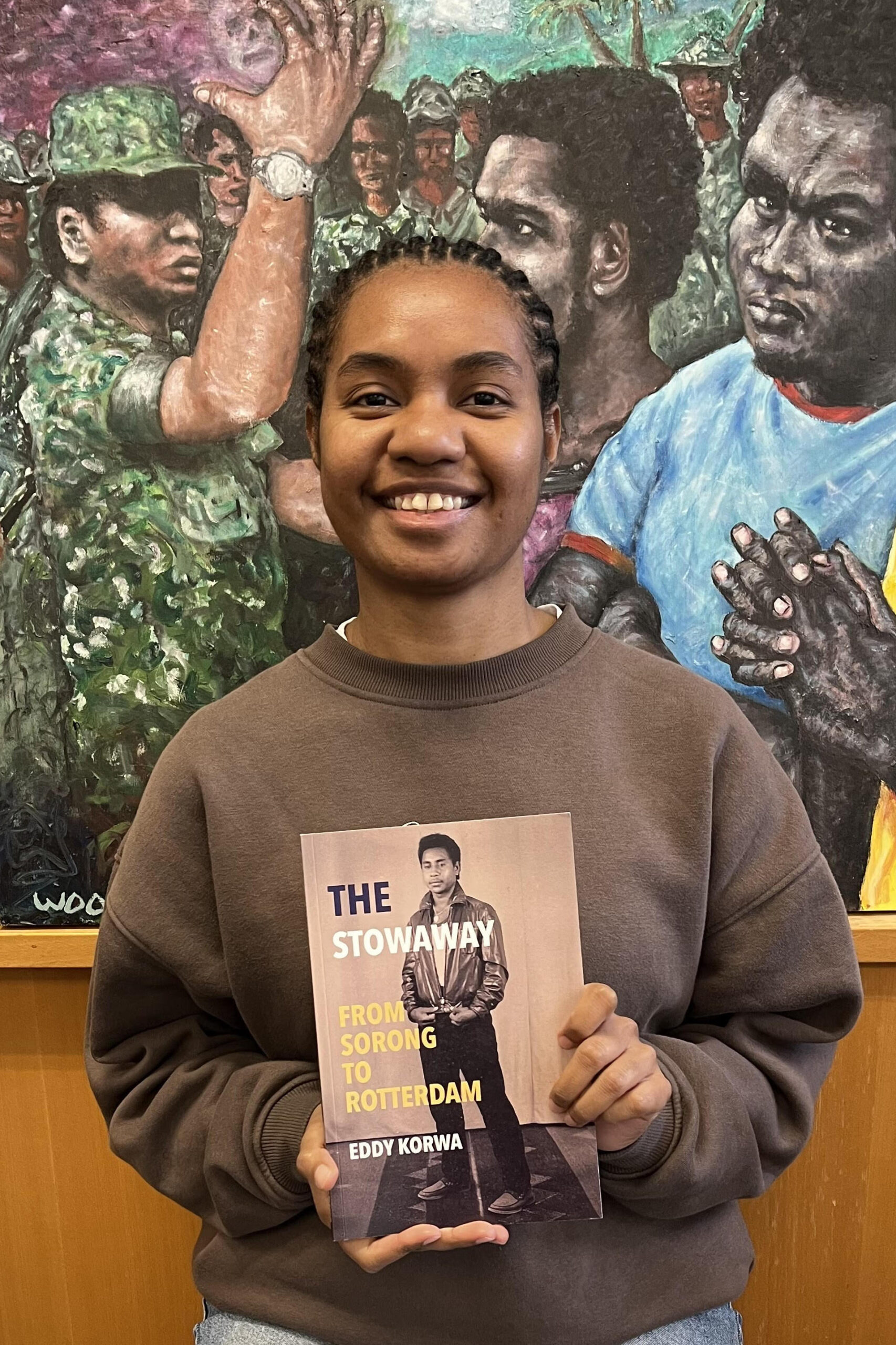
Ribka Ovide with The Stowaway, from Sorong to Rotterdam published by Stichting Vrij Oost Timor Free East Timor Foundation (NL) and West Papua Women’s Office (Docklands, Australia) on 31 August 2025
The Stowaway co-writer Endie van Binsbergen
Endie van Binsbergen is a Dutch activist from Utrecht. For six years she spent every Wednesday with Eddy capturing his story and putting it, as she says, ‘in the right order’, then organised its publication and distribution. On 12 October 2024, David Bradbury, an intrepid Australian film-maker, captured the two of them at the annual West Papua Market in Utrecht, where they were selling the original (Dutch) version of the book. Eddy died ten days later.
David’s great little marketing video (5 min.) https://www.youtube.com/watch?v=xNLQIfrI0bE
Endie interviewed by Aprilia Seseray for launch (17 min.) https://youtu.be/s4tbj8gzLLQ
Endie was an official observer of the referendum in East Timor in 1999, where, remarkably, she met Eddy’s relative, Jacob Rumbiak, who was also an observer of the tiny nation’s historic and very bloodied liberation moment. Here is an excerpt from Endie’s essay Looking back at 1999:
“At the voting centre in Beloi …. we met another observer…. he told us that he came from Jakarta, but looking at his face I could tell he was a Papuan. We talked for quite a while .… He intrigued me. After the referendum we saw the violence increasing … and on 2 September our office in Dili convinced us to leave Viqueque the next morning … that afternoon we met the Papuan observer again, and he asked us to take his reports to Dili, as his ride got involved in an accident and could not pick him up. He said that he planned to travel by perahu (fisherman’s boat) along the coast, as there was no other way to get from Viqueque to Dili. We had a quick team meeting and decided that this man would travel with us to Dili. That night in Baucau we watched CNN at our neighbour’s and heard that Xanana Gusmão was released from Cipinang prison. Our friend whispered: “We need to tell him not to come back to Timor yet. They will kill him. Can I use the satellite phone?” Now we knew for certain that this man was not just an observer. “Who are you, who are you really?” I asked him. He shook his head and said: “I am a friend, trust me. I will tell you about myself when we are out and safe”. We did trust him. But we also told him to stay away from the satellite phone”.
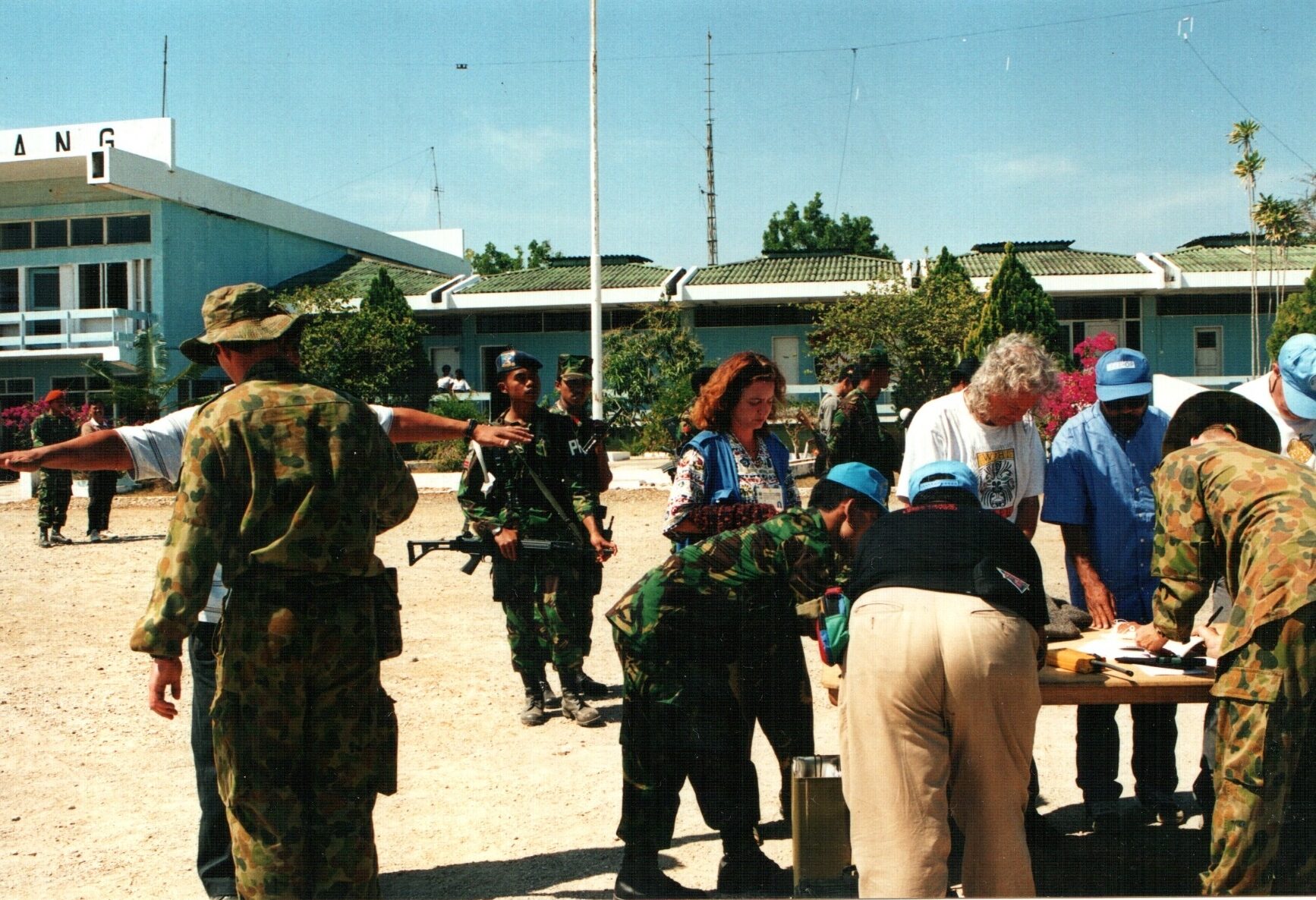
Endie and Jacob Rumbiak, Baucau Airport, East Timor, boarding the RAAF Hercules heading to Darwin, 3 September 1999, the day before the UN announced the referendum result (78.6% for independence)
Three reviews of ‘The Stowaway, from Sorong to Rotterdam’ (2025)
i) Vien Sawor, 2nd generation Papuan in the Netherlands
The Stowaway provides a valuable insight into a population group that has been neglected in Dutch history books, namely the Papuans in the Netherlands. With a touch of melancholy I read the story in one go. Melancholy because the people in the story that I know have already passed away without seeing their ideal of a free West Papua come true. The anecdotes are recognizable to many Papuans in the diaspora. Funny, moving, but also hopeful, because “as long as the Morning Star shines, there is still hope for a better future for the next generations” (Vien Sawor, Collaborative Organizations for West Papua (SOWP).
ii) Jenny Herrera, Author and Activist: World War II West Papua, Self-determination for East Timor and West Papua (2,000 words)
[first paragraph] “Korwa has a gripping story to tell … important because of his insights into two neglected areas of writing on West Papua. The 1950s, as the Dutch Government began to prepare the West Papuan people for independence, was a time of excitement, hope, and change. And the life lived by West Papuan exiles in the Netherlands, which is little known in Australia. Sadly, it appears from Eddy’s account, to be not much better known in the Netherlands itself……”
[final paragraph] “He ends his account: ‘I fear for my people. My country will never again become the pristine land that I left in 1964. The water polluted by gold mining cannot cleanse itself. Vast areas of rain-forest have been cleared for palm oil plantations. The bird of paradise faces extinction. But as long as voices calling for justice are heard in the cities and the interior, as long as international attention is growing, and as long as the Morning Star still rises, there is still hope for a better future for the generations to come. May this future be one of freedom.’”
PDF of Jenny’s most interesting and comprehensive review (2,000 words)
Review, Jenny Herrera, The Stowaway,
Review by Angela Turner, West Papua Women’s Office-Docklands
Eddy Korwa was personable, intelligent and enthusiastic in all that he did. His book, as well as being his story, is a history book, with a smooth easy-to-read narrative. However, the historical political facts stop us from relaxing and enjoying a rollicking good tale. Citizens of U.S.A, the Netherlands and Australia as well as member-states of the United Nations will no doubt experience a deep and deserved feeling of shame. These countries voice support of democracy, freedom and independence but lose their voice in the face of trade advantages. Eddy Korwa’s accusations of their complicit activities and deliberate neglect of West Papuans is knowledge that we must have so that finally we will demand that Indonesia cease its repugnant genocide and pillaging of a different race, ethnicity and country.
The Dutch colonisation of West Papua seems to have been forgiven by the Papuans with the Dutch plans, preparation and implementation of self government. I was disappointed to learn that President Kennedy started the rot of countries being selfish rather than principled by declining to attend the 1961 inauguration of the enthusiastically celebrated, elected New Guinea Council so as not to offend Soekarno. Indonesia’s theft of West Papua was started by lustful President-for-life Soekarno in 1949 and Eddy was a witness to Indonesian infiltration activities.
I wonder why the United Nations Security Force of [only] Pakistani troops failed to interfere when Indonesian soldiers beat peaceful Papuans in 1962? Australia followed the example, and when the ship was in Melbourne the stowaways were jailed in Geelong for the crime of leaving “West Irian”! Australia didn’t want them claiming refugee status. However, in 1985 there was a group of Australians who did help West Papuans at a U.N. Conference in Geneva. No, not our government, Australian Aborigines.
I was disappointed to learn that Donald Trump didn’t invent fake news. Dutch newspapers published Indonesia’s false stories as truth. And the 1984 incident of 4 Papuans seeking asylum in the Dutch embassy in Jakarta didn’t sound familiar to me. My bad memory or censorship?
Eddy Korwa’s book is enhanced with little details like Indonesia not approving of Papuans following Dutch clothing fashions like ‘drainpipe’ trousers, and his italicized interjections add clarity. The newspaper clippings, condensed from 3 pages in the original Dutch edition of “The Stowaway”, still convey resistance and struggle.
In 2017 Eddy was insulted by a young ignorant Dutch public servant because, like Australia, the Dutch curriculum doesn’t cover West Papua. “I am a Papuan and I will remain a Papuan. I am not an immigrant. I was born under the Dutch flag.” Would we be as astute in Eddy Korwa’s situation? As educated, as politically informed, so persistently seeking freedom?
Jacob Rumbiak: ‘West Papua is ready to run its own state’ (6 slides)
(PDF version) Jacob, Open Day, 31 August 2025
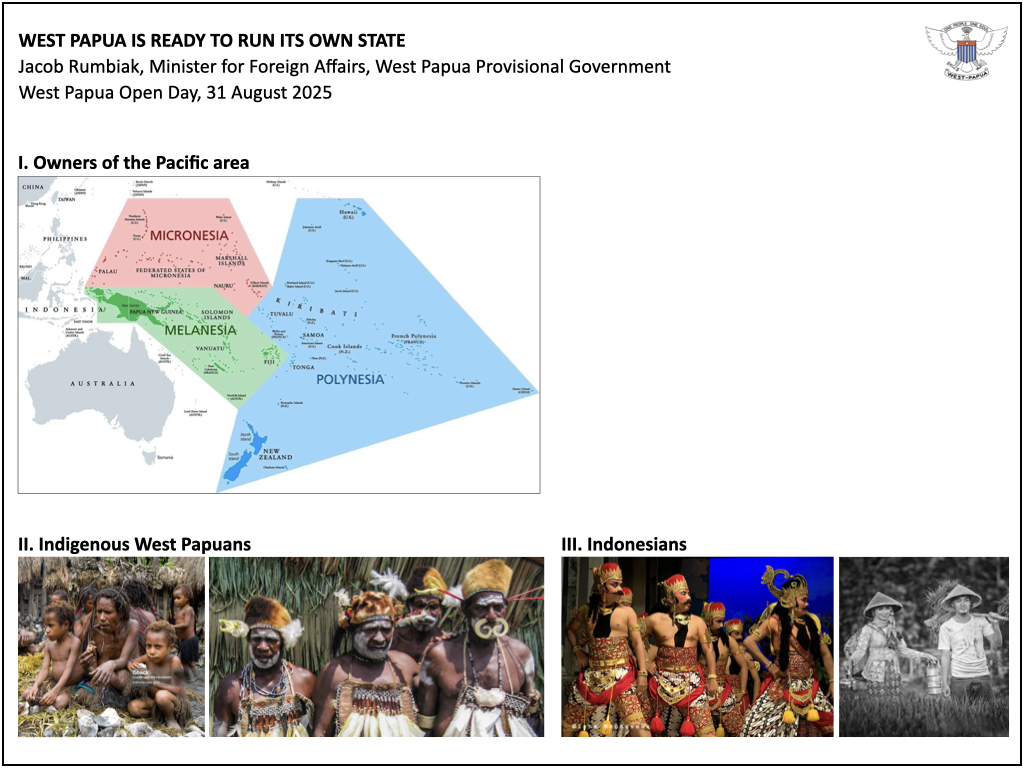
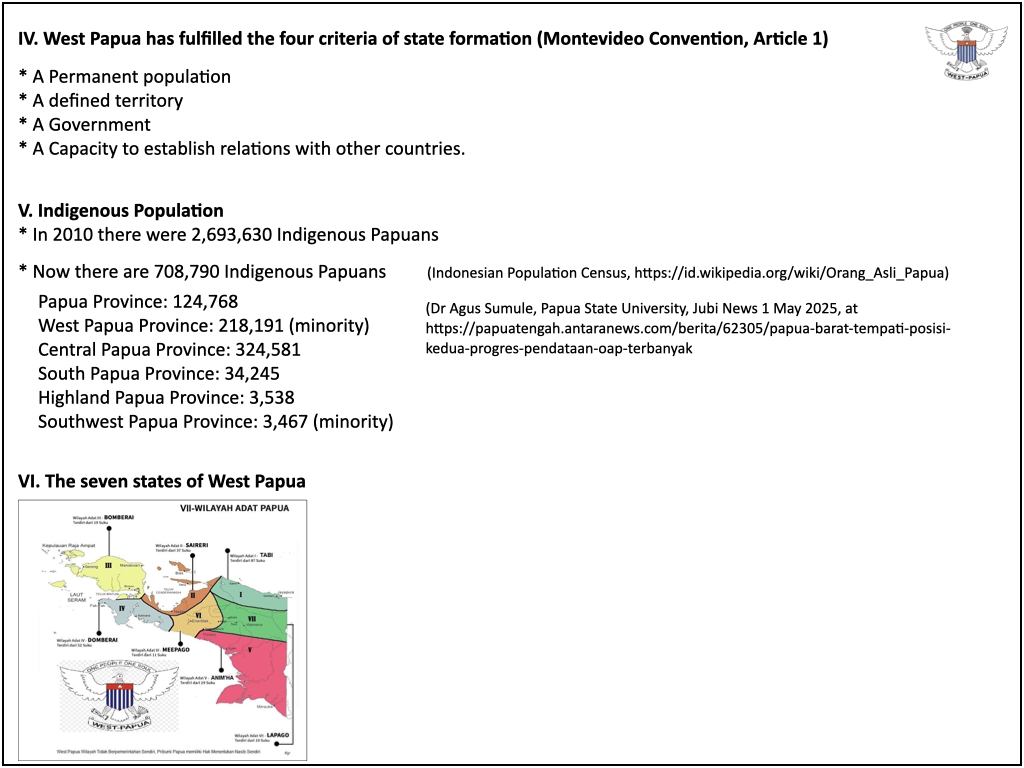
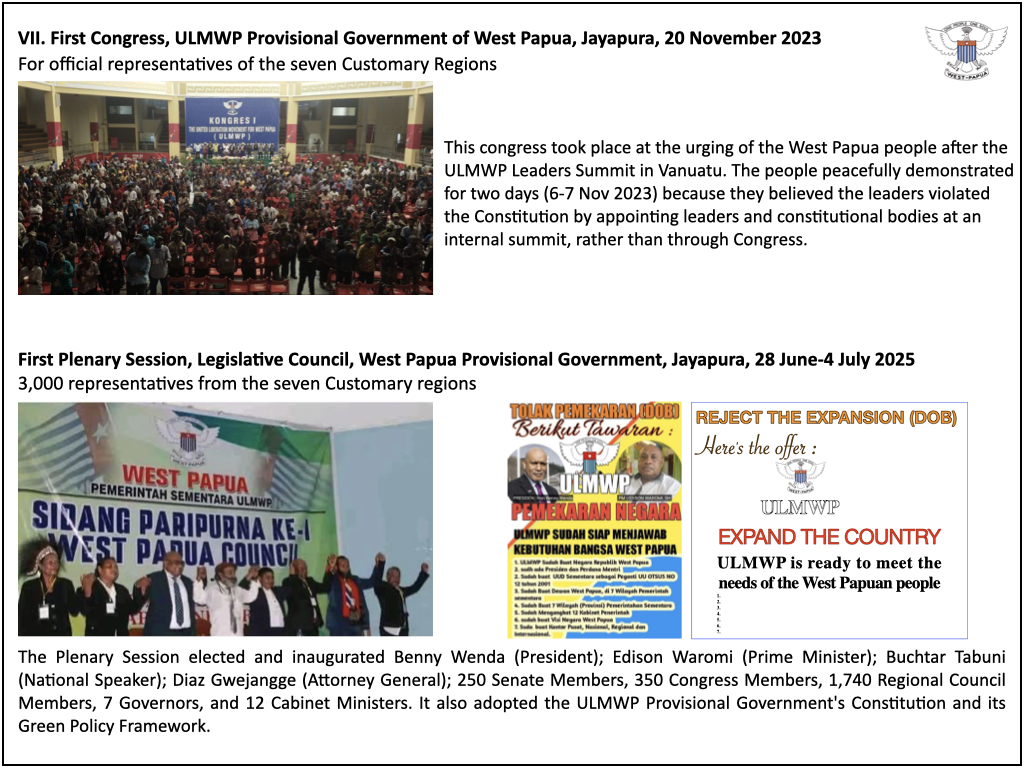
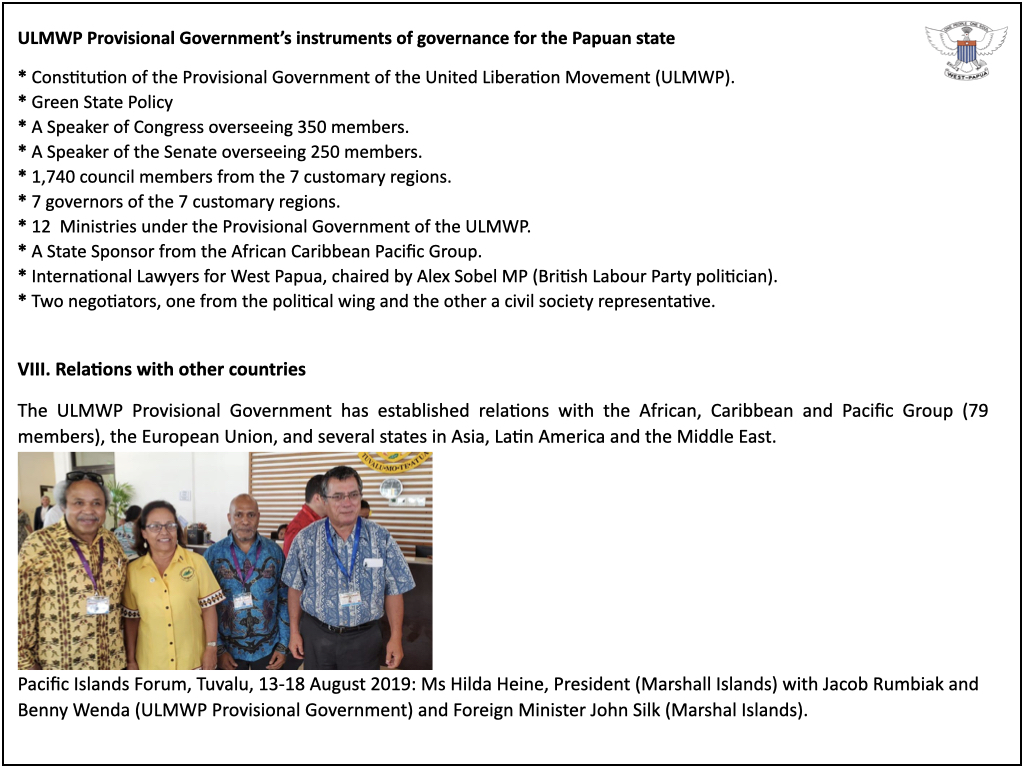
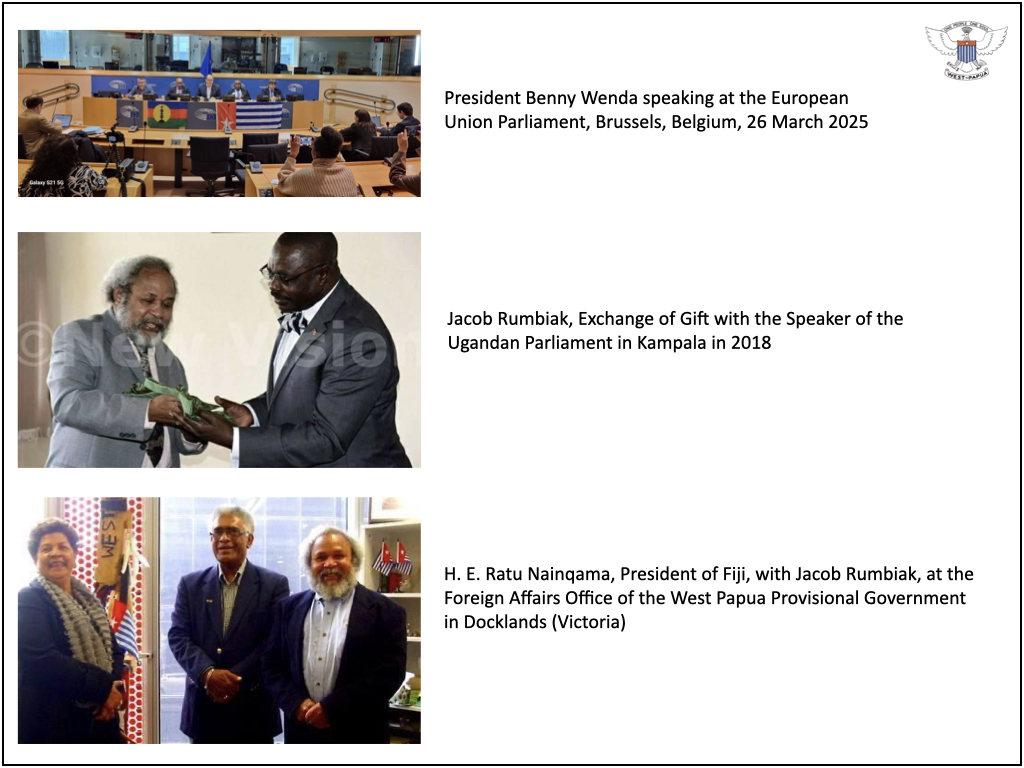
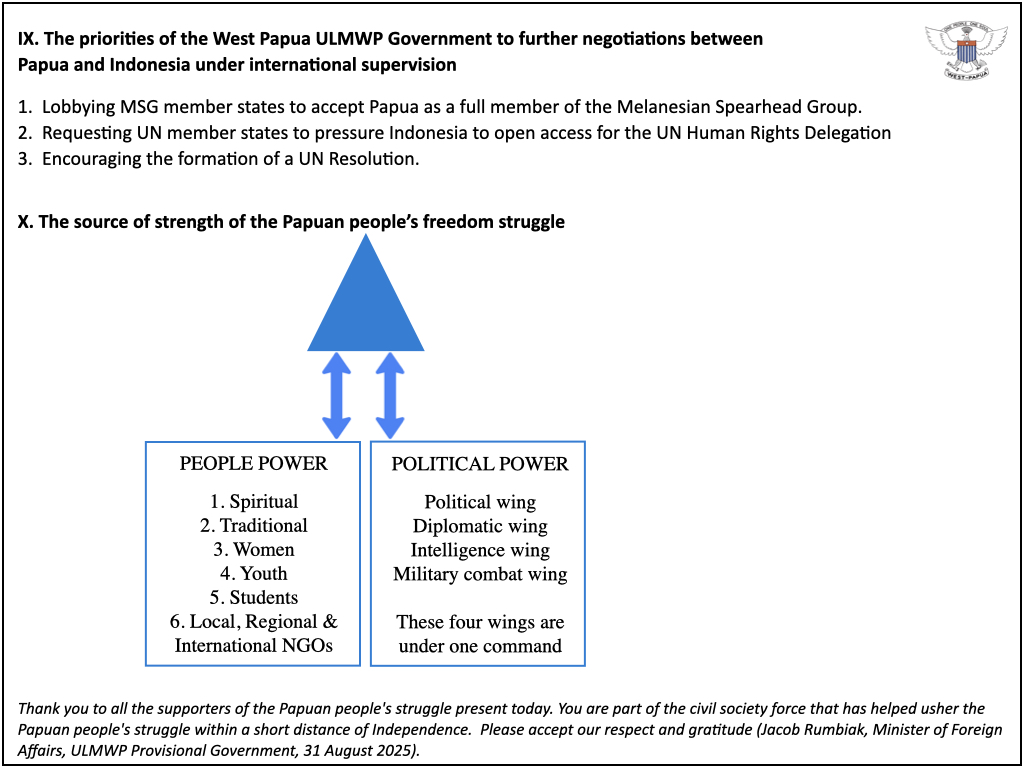
Memorial: Mathias Wenda, OPM Commander
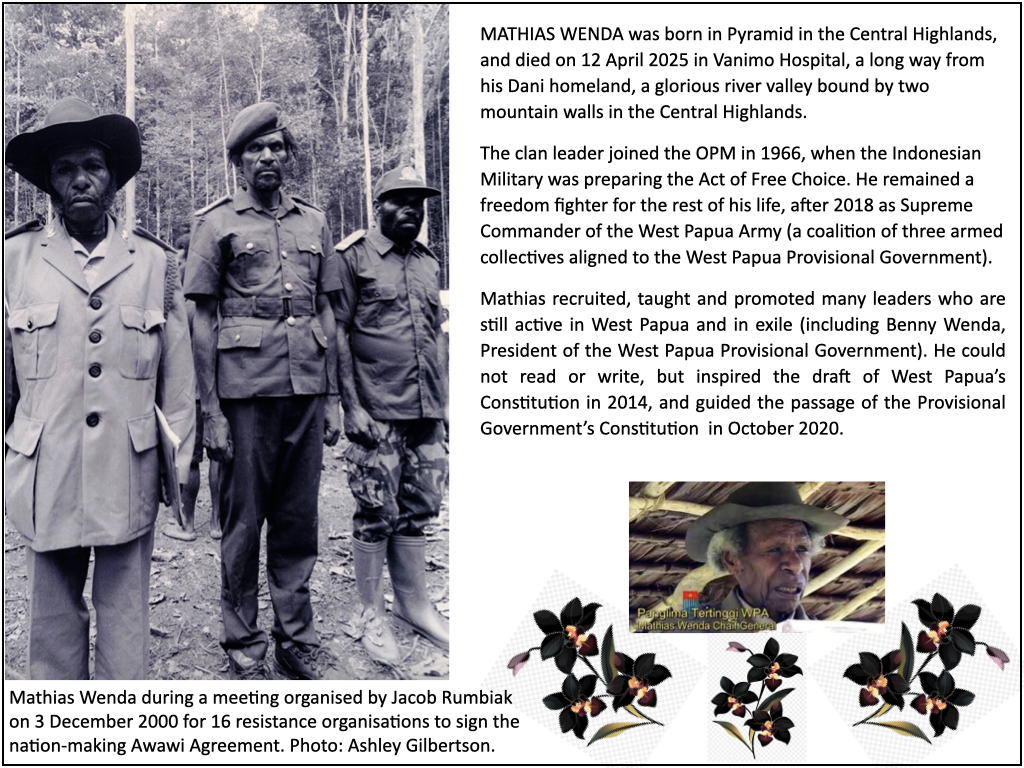
Memorial: Dr Nonie Sharp, Australian anthropologist
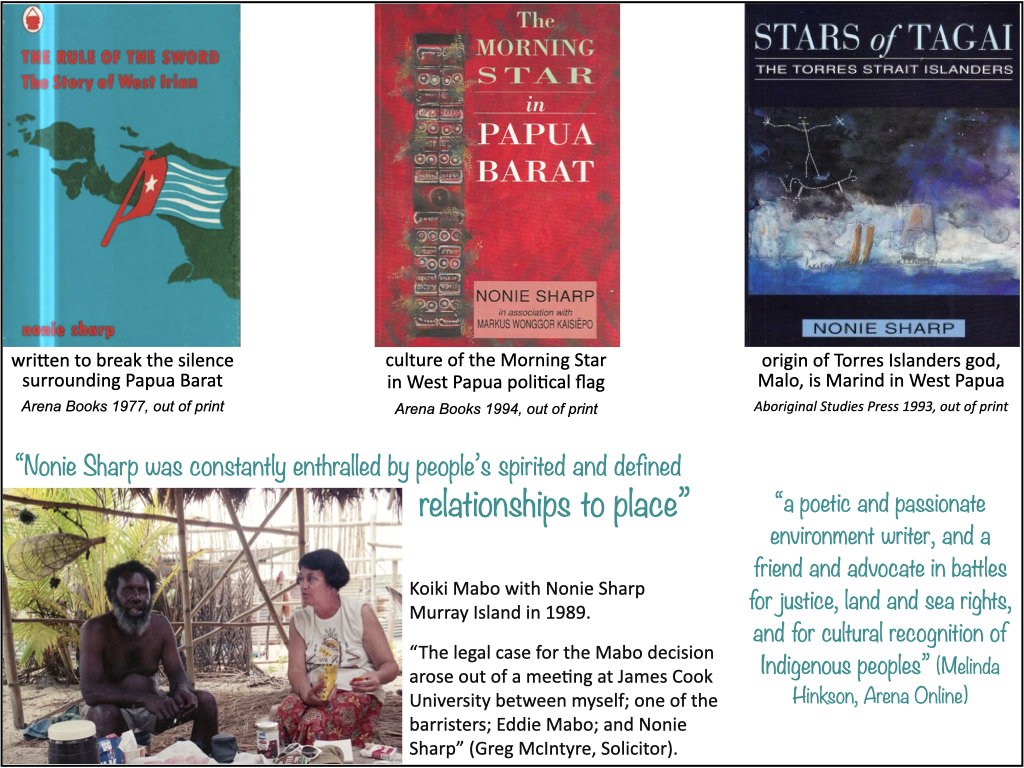
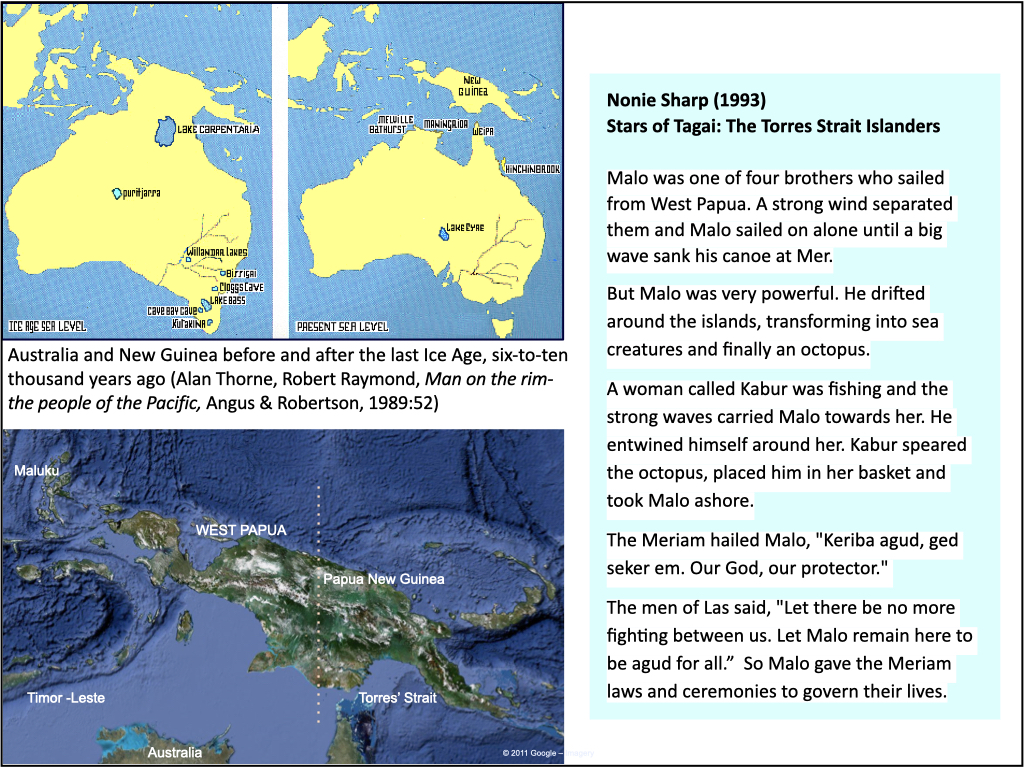
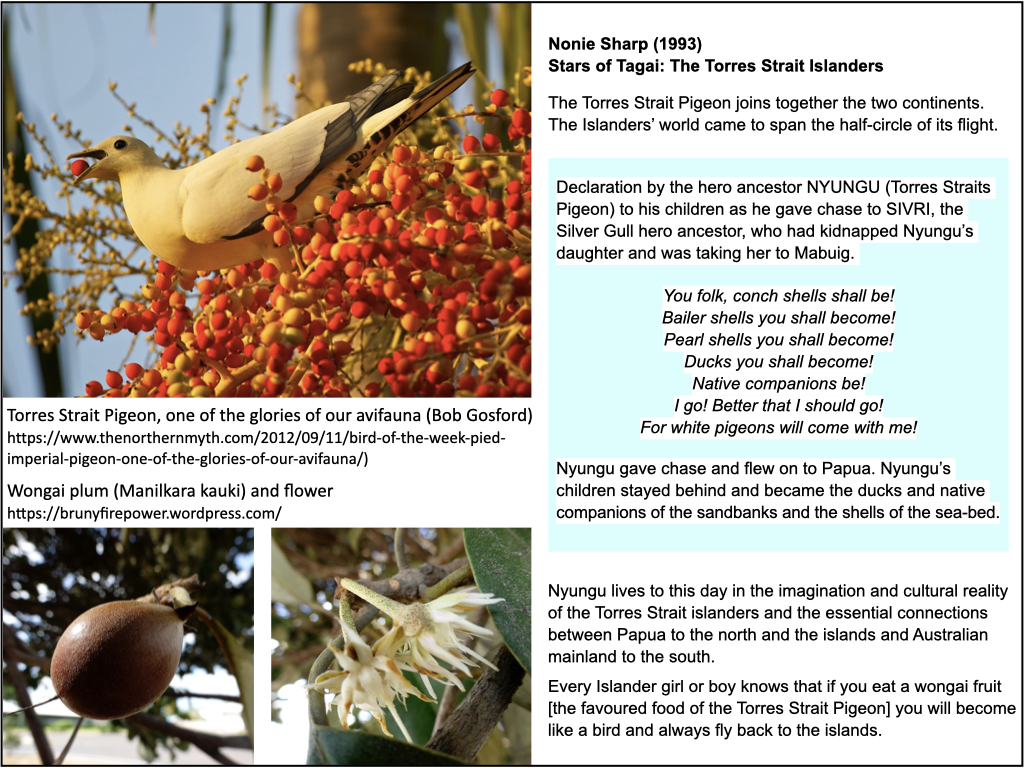
West Papua Rent Collective
The West Papua Rent Collective is a luminous galaxy of Australians who have been investing in West Papua’s future as an independent Melanesian state since 2014. Members donation of $1 a day ($30/month, $360/year) pays the rent on the Federal Republic of West Papua’s five 5-star energy office at 838 Collins Street in Docklands (Melbourne). The Office, co-ordinated by Jacob Rumbiak (Foreign Affairs Minister, West Papua Transitional Government) works within the parameters of Self-determination, Sustainability and Good Governance.
